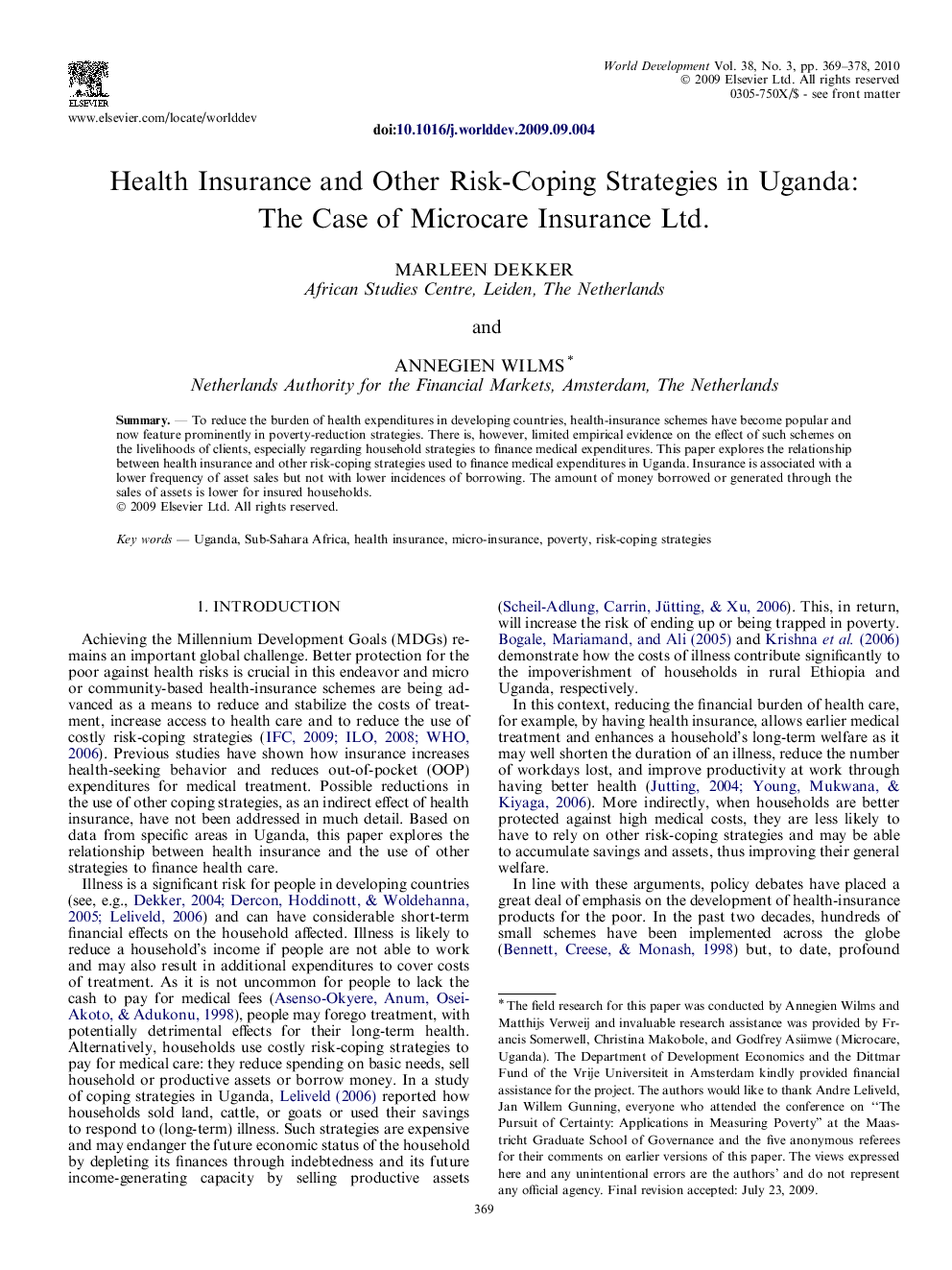| Article ID | Journal | Published Year | Pages | File Type |
|---|---|---|---|---|
| 991692 | World Development | 2010 | 10 Pages |
Abstract
SummaryTo reduce the burden of health expenditures in developing countries, health-insurance schemes have become popular and now feature prominently in poverty-reduction strategies. There is, however, limited empirical evidence on the effect of such schemes on the livelihoods of clients, especially regarding household strategies to finance medical expenditures. This paper explores the relationship between health insurance and other risk-coping strategies used to finance medical expenditures in Uganda. Insurance is associated with a lower frequency of asset sales but not with lower incidences of borrowing. The amount of money borrowed or generated through the sales of assets is lower for insured households.
Related Topics
Social Sciences and Humanities
Economics, Econometrics and Finance
Economics and Econometrics
Authors
Marleen Dekker, Annegien Wilms,
